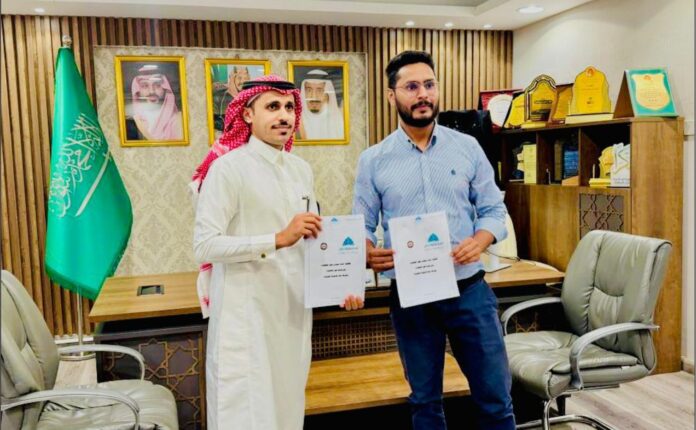Islamabad:- Pakistan is home to 13,032 glaciers including the Karakoram mountains, the Indian Kush and the Himalayas, making the northern region the largest reservoir of glaciers outside the polar regions. However, these glaciers and their surrounding habitats are highly threatened by extreme climate change, with 10,000 glaciers shrinking.
The Glacial Lake Floods (GLOFs) project, supported by the United Nations Development Program (UNDP) in collaboration with the Ministry of Climate Change and Environmental Coordination and the Green Climate Fund, aims to address climate vulnerability in the valley. Gilgit Baltistan (GB) and Khyber Pakhtunkhwa (KP). This project aims to protect communities from the effects of GLOFs as a result of melting glaciers. In partnership with Cirrus Pakistan, this project is deploying awareness classes in various universities and colleges in GB and KP, conducting a climate-focused hackathon that includes ideas and solutions based on local knowledge to improve climate adaptation mechanisms and programming.
Applicants are invited to submit ideas to promote climate-smart solutions through innovative practices in livelihoods and disaster risk reduction, among other focus areas. In this regard, Dr. Allah Ditta, Associate Professor / Chairman, Department of Environmental Sciences, Shahid Benazir Bhutto University, Sheringal University said, “Collective efforts to engage our youth through such initiatives will lead to innovative solutions to combat the severe impact of climate change in our region. “
Sumaira Gul, a student at Karakoram International University (Chilas) Diamer Campus, discussed the need to invest in central climate solutions to combat the effects of global warming during the briefing session. “The seriousness of the situation motivates us to participate in this hackathon with the hope of contributing to a sustainable solution that will protect our community and environment,” he said.
UNDP GLOF-II project works in 16 valleys of Gilgit Baltistan and 8 valleys of Khyber Pakhtunkhwa province. It enables communities to identify and manage GLOF-related risks and climate change impacts, strengthen public services to reduce GLOF-related disaster risks, and improve community preparedness and disaster response. The project also supports the development of sustainable livelihood opportunities in the project area, with a particular focus on women’s participation in ensuring food security and recreation.
The Glacial Hackathon: Incubating Innovative Ideas and Solutions to Tackle Challenges Posed by Climate-Induced Disasters






